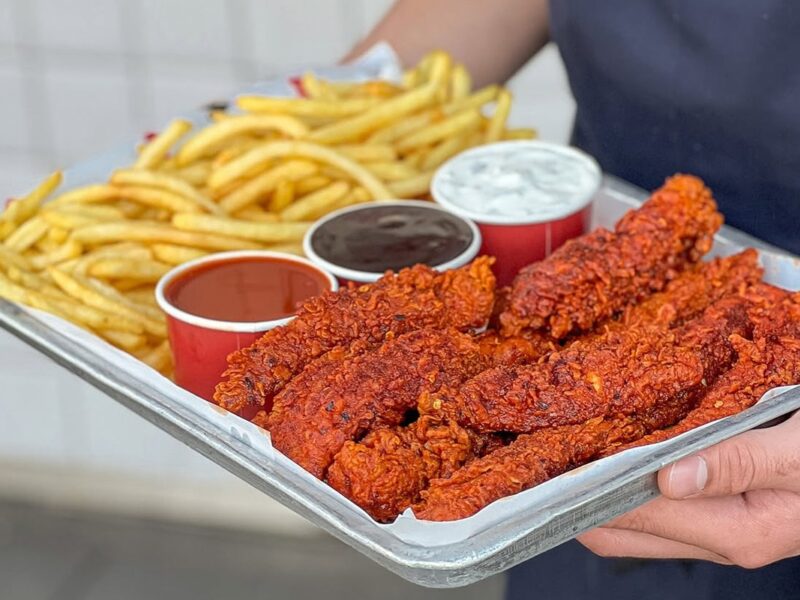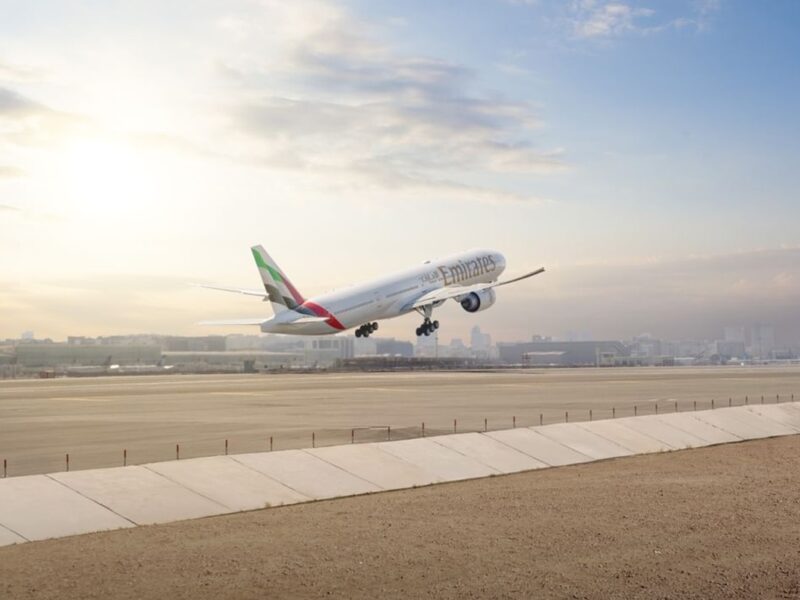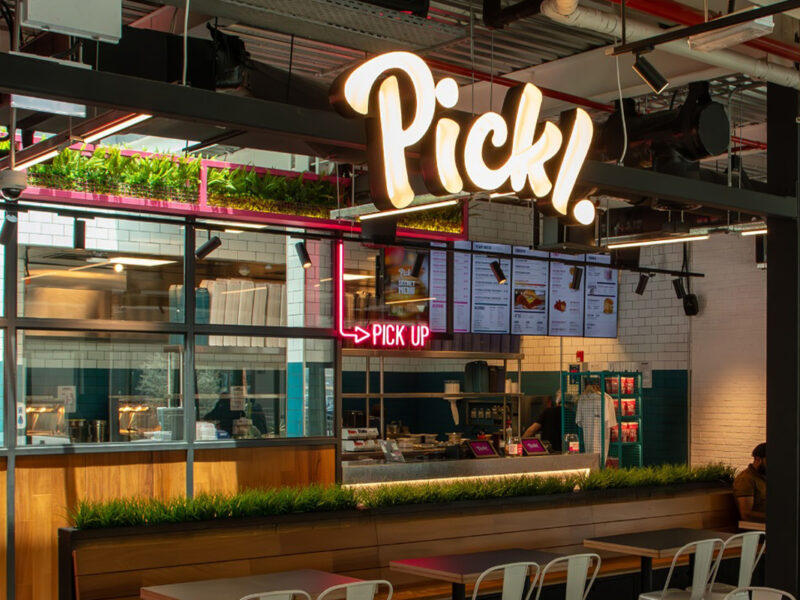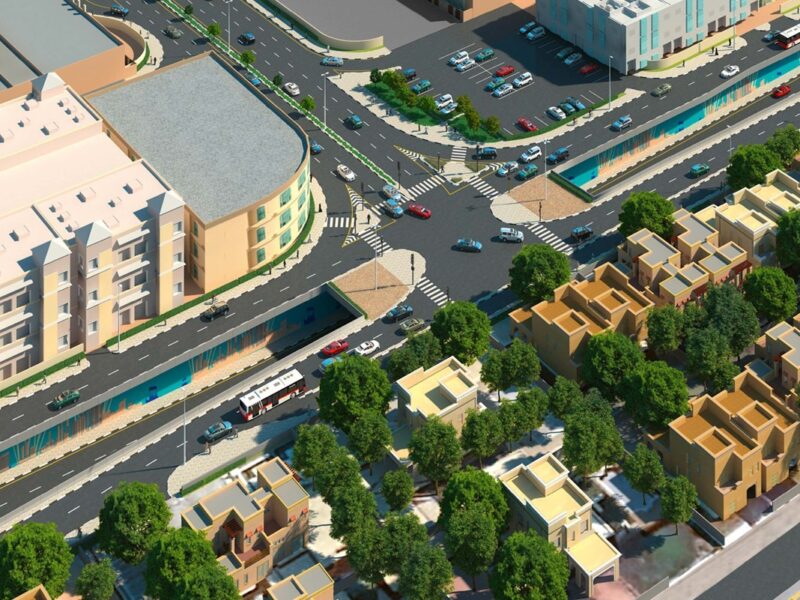LM: What facilities does the Jebel Ali International Shooting Club have?
The Jebel Ali International Shooting Club was founded in May 1995 under the order of His Royal Highness Sheikh Maktoum Bin Rashid Al Maktoum, the ex-ruler of Dubai. The club is located on grounds of 560,000m². Actually, the clubhouse and the range do not take up that much space – they takes up about 10-15% of the land, but for safety precautions we have additional land to create a safe barrier.
I am responsible for the running of the shooting and archery clubs. We used to also have handguns, but due to changes in the law, we have not been able to offer those for quite some time now.
There are five clay shooting ranges to cater for trap and skeet, the two main disciplines in Olympic championship shooting. I also have two other ranges, which are called “sporting” – this is a layout that simulates the flying of birds in the field, which is good practice for people who go hunting.
LM: Which is most popular type of shooting on offer at the club?
Sporting is the most popular for amateurs. We suggest that for people who are just looking to have fun. But when people start wanting to be a professional, then they have the choice to do trap, skeet or double trap.
Skeet is shooting from towers – we have what we call a high house and a low house, and the shooters shoot from eight stations that are arranged in a semi circle – station one, which starts at the high house, to station seven, which is the low house. Station eight is the most difficult, because there the clay flies directly above the shooter, and it’s flying at a speed of 20m per second, so you have less than half a second to shoot at it. You have to have quick reactions to be able to mount the gun and shoot it.
The clays themselves are constant – every time they fly on the same trajectory, the same height and the same speed. The shooters move around the stations, so the angle of the shots differs, and they become gradually more difficult as you work up to station eight.
This is opposite to trap shooting, which has five stations. With this type of shooting the clays fly from 15m in front of the shooter. They go right and left, high and low, but the gun is already mounted on the shoulder of the shooter. When the shooter calls for a target, one of the three machines will throw, and this is decided at random by the computer, and the shooter himself does not know where the clay is going to fly. And the clay is very fast – it flies at 145.5km an hour.
Finally, in double trap, it is the same type of range but at each station there are two clays that fly in front of the shooter and he has to shoot them both, one after the other. This makes it quite difficult, because shooters need to synchronise their shots.
LM: How many people work at the club?
We have two divisions – the shooting division and the food and beverage division. The Jebel Ali Golf Resort and Spa controls the F&B, although it’s under my supervision in a way, as well.
Shooting, however, is under my command and there are 15 people who look after the shooting activities. There are various categories of instructors, the range supervisors, safety officers, gun issue people and receptionists.
LM: Do you train all the staff to a specific international standard?
All of these employees are taught by us. We take them on knowing nothing about the job.
There is an international standard, and a few of the staff are at that standard in coaching. But here, we teach people how handle the gun safely and to shoot a target in a safe way. The instructors and range boys are taught exactly what to do, and they do exactly what they are taught.
When you get someone with shooting experience, it’s usually hard to put sense in his brain to be safe. But if you bring someone who is a novice, who knows nothing about shooting, and you teach them how to follow a strict set of guidelines, then that person will follow them to the letter. He learns the safety rules and regulations you’ve taught him and he will keep that – anything that is outside of what you have taught him, he can detect immediately, so he knows that it is wrong. This is what we need here, because safety is such a high priority.
LM: What are the specific challenges of operating this type of facility?
Safety for us is priority number one. Thank God, for the past 11 years we have not had a single accident at the shooting club.
People who come to the club for the first time and are amateurs don’t even know how to carry the gun in a safe manner and we will have teach them that. We will even accompany the experienced shooters to the range, just in case anything happens. We have to be there to act immediately, and we act very fast.
LM: Is the meetings market an important part of the shooting club’s business?
The main source of revenue to the Jebel Ali Shooting Club is corporate events. Sixty percent of our business is walk in guests, members and hotel guests, and 40% is corporate. We have an average of 200-250 companies come to the club in a year.
Groups of 50 or 60 people – or up to 100 people – will come here to do clay shooting and archery, and then at the end of the day have a little award ceremony and give the guests trophies or medals as souvenirs, and our photographer will take some photos for them. The very first thing we do, however, is give them a lecture about shooting and show them how to handle a gun safely, because the groups usually are novices.
With each person that is shooting there will also be an instructor accompanying them. Three people can shoot at a time, so there are three instructors on hand, both for the clay shooting and for the archery.
LM: Does the shooting club get good return on investment (ROI)?
The shooting club is not a “profit centre”. It is a complementary venue to whatever leisure venues they’ve got in Dubai, to cater to tourism and to be a venue for international games when one is required.
We don’t call it a profit centre – there’s too much cost involved. We buy everything – the cartridges, the clays, the guns, and we always buy the best. In addition, we have 15 people on staff, all of whom have salaries, and then there’s landscaping, air conditioning, lots of water, lots of electricity. So we don’t really turn a profit, but we don’t lose either.
LM: What leisure facilities do you see as the shooting club’s main competitiors?
We’re the only shooting club in Dubai, so we don’t really have any competitors. There was a club in Sharjah, but that is only pistols. They had clay shooting but they closed it down immediately because they couldn’t compete with me. There is also one in Umm Al Qaiwain, but that’s a small one, and Jebel Ali International has another one at the Hatta Fort Hotel, but that’s just small too, for the few local residents and hotel guests. My club is unique in the UAE.
LM: What does your job involve on a day-to-day basis?
I run the club. That involves the administration work, the sales, confirming bookings and so on. I confirm the enquiries, and then I action them to the hotel for the banqueting department, for food and beverage supplies.
Basically my staff do all the operation, but under my supervision. I oversee everything.
Also on a daily basis, I have a store of ammunition that I have to make sure is fully stocked and check to make sure it is all there.
I cannot disclose how many bullets we get through in a week, but it is enough. Let me put it this way: on a monthly basis, we might sell 70-80,000 shots. So we usually have to keep a store of around half a million, which has to be controlled every day. There are two stores – one main store and another store for the daily sales – and we have to know exactly how many we’ve sold, how many are left, and the balance has to be counted. Then I have to authorise it all.
It’s a dangerous thing. We can never afford to lose even one cartridge. We will not allow it to happen.
It might sound like I am handling a dangerous sport, but actually it is not dangerous at all. If the person is dangerous, he will make it dangerous. But if you have been taught the safety precautions, you will be fine. And if a guest doesn’t listen to the safety instructions, they will not be allowed on the range.
For me, I don’t like easy things. I love a challenge. I can never switch off because it’s dangerous. An accident can’t be categorised as fatal or not fatal – for me it’s always fatal and I cannot allow that to happen. People could die.
If there was an accident and someone was injured, it wouldn’t just be “bad for business” – we’d close and I’d go to jail. All the responsibility and culpability is on my head. I’m the manager.
I don’t want to go to jail, so I make sure that every instructor and every employee obeys my rules and safety standards. That way I’ll be fine. I have to have a lot of faith in my staff – because it is my job and my life on the line – and I do have that faith. But I’m also always there in the background, teaching them, pushing them to succeed, and keeping watch over things. They wouldn’t even dare to make a mistake because they understand the consequences.
LM: How would you describe your management style?
One thing I always tell my employees, when I hammer them a bit, is that if you don’t love your job, go home. This job – shooting, hunting, dangerous material – is my life.
It’s an easy job to handle provided you look after every move. I have to be very eagle-eyed and very aware at all times. Nothing happens here without me knowing about it, because I bear all the responsibility for it.
That’s the biggest challenge to me. It is a challenge to be in the office, with a guest, in the restaurant, looking after the ranges and to be down in the archery section, all at the same time. I’m always doing my rounds.
LM: What are your plans for the club?
I wish I could upgrade the club to Olympic standards. We are not fully at the Olympic level at the moment, and I wish we could just make it bigger. There are talks about these ideas, but nothing is agreed at the moment.
It all depends on the situation – we have the Dubai Waterfront development next door, with all its offices and residential buildings, and when that all opens my club will be well known, convenient and easily accessible for a lot more people, and I will need more facilities to cater to this.
I have take my chances and rely on my expertise to make sure we can compete with the many other leisure developments that are coming up in Dubai and Abu Dhabi.








